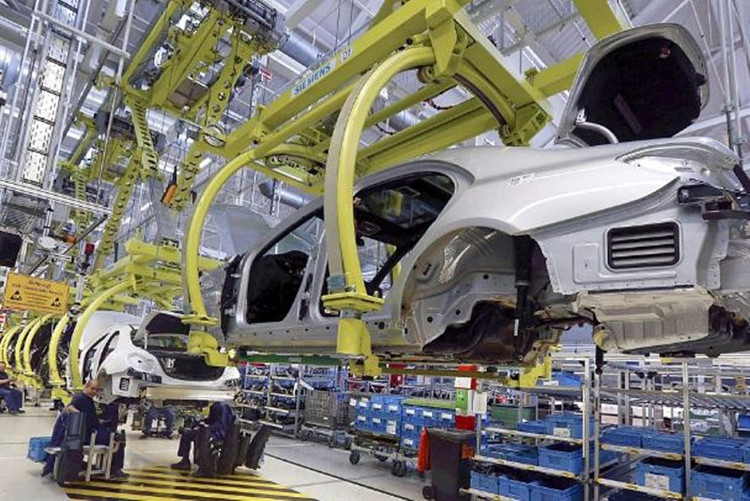Germany seems to have avoided entering a "technical recession" by the slimmest of margins, and some economists argue it would have been in one in the fourth quarter if 2018 didn't have one more working day than the same quarter in 2017.
Real GDP in Germany rose 1.5% in Q4 2018 year-on-year, down from a 2.2% increase the previous year. On a quarter-by-quarter basis, however, this result implies that growth in Q4 may have actually fallen.
The Q4 GDP numbers are not adjusted for the fact that 2018 had one more working day than 2017, so it's safe to assume the fully adjusted growth estimate would have been closer to 1.4% than 1.5%. Analysts said this suggests GDP was either flat or fell by 0.1% in Q4. If it did actually fall, this means Germany would now be in a technical recession.
A technical recession is when you have two quarters in a row of economic or GDP contraction. It suggests a very brief contraction before growth resumes. The generally accepted definition of a recession is two back-to-back quarters of declining GDP.
Germany is the world's fourth-largest economy; the largest in Europe, and is also Europe's manufacturing engine. So any weakness in Germany is worrisome to its neighbors and the world in general.
Bank of America Merrill Lynch says Germany's economic weakness is widespread. As proof, it cited the 1.7% drop in manufacturing output quarter-on-quarter. This unwanted deceleration is probably too much for the rest of the economy to compensate, said BofAML
Car sales in Germany remain weak. Then there are headwinds created by potential U.S. trade tariffs against German cars, which will shave-off 0.6% of GDP. The palpable slowdown in Chinese demand and a decline in the value of the Chinese yuan will lead to lower German GDP. And, of course, there is the economic uncertainty generated by Brexit.
The German economy shrank by 0.2 percent in Q3, its first contraction in more than three years. This deceleration was mainly blamed on German carmakers' struggles to comply with tough new EU emissions tests.
This caused production bottlenecks across the motor vehicle industry. In addition, low water levels at the Rhine River hampered shipments of chemicals and raw materials.
Many economists, however, pointed out that Germany's underlying fundamentals remain strong, and are being driven by strong domestic demand.
Economy Minister Peter Altmaier, who expects German growth of around 1.5 percent for 2018 compared with 2017's 2.2 percent, said there is no recession.
"Germany is not at the beginning of a recession, even if there are unresolved problems in international trade with Brexit and the United States," said Altmaier last week.
He said Germany "has a strong reputation globally, the mood is good among businesses and many order books are full."






